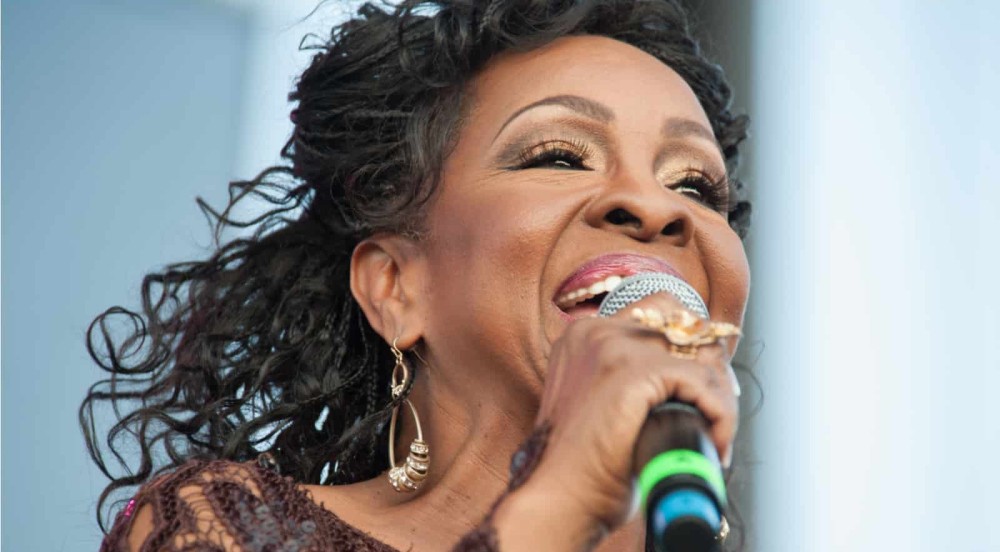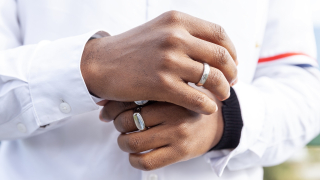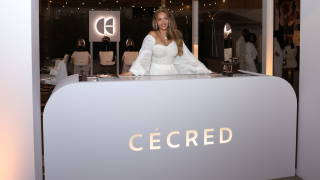Black female singers have made a huge impact on pop music, and journalist Danyel Smith, a host of the NAACP Image Award-nominated Black Girl Songbook podcast, has literally written the book on their contributions. Shine Bright: A Very Personal History of Black Women in Pop is a merging of this former Vibe editor-in-chief's own story and the stories of Black women who are deeply fundamental to the American art form. “Writing this book and talking about it all over the country, I’ve become even closer to the detailed accounts of these brilliant women like Diana Ross, Aretha Franklin, Whitney Houston, Mariah Carey and more,” Smith shares.
From Gladys Knight’s pop vocal ballads that embodied the 1960s to Linda (Greene) Tavanti’s integration of the music scene in Virginia Beach, Smith gives us an uplifting lyrical lesson on four women who have stamped their unique and unequivocal marks on the pop music scene and are still inspiring other female singers today.
Millie Small
In 1964, Millie Small of Clarendon Parish, Jamaica, had a huge pop hit with a cover of Brooklyn teen Barbie Gaye’s “My Boy Lollipop,” which made Small an international sensation. The song sold over six million units worldwide and laid the groundwork for reggae’s global impact.(It also made history as the first song from a Jamaican to sell over a million records.) Her ska record was Island Records’ first success—paving the way for the label to sign Bob Marley.
In 2016, Small revealed that she never received royalties from “My Boy Lollipop,” which left her financial legacy in question for her offspring when she died in 2020.
Gladys Knight
Known as an emotional, professional leader, Knight was winning vocal contests at age 7 and helping to support her family with the prize money. As the leader of Gladys Knight & the Pips, she has been nominated for 22 Grammys and won 7. In 1996, Mariah Carey inducted Knight into the Rock & Roll Hall of Fame. In 2022, Knight was o celebrated for her illustrious career in the music industry by Kennedy Center Honors.
As a performing artist, she is unmatched, yet her intensely casual and deeply influential brilliance is taken for granted; think of, as just as one of countless examples, the video for 1985’s “That’s What Friends Are For,” the number one pop single that raised millions for AIDS research and became an anthem of the battle against HIV/AIDS. In the song, Knight is the closer. She rolls into its last third, infused with the holiness of both giving back, and ready to merge with the talented artists that surround her.
Linda “Peaches” Tavani
Just a few decades past, Virginia Beach, Virginia, was a mess of hatred percolating on the undying simmer of slavery and Jim Crow laws; Case in point, Blacks weren’t allowed to walk on the beach there until the 1960s. That didn’t stop Tavanti, a Washington, D.C. native, from singing regularly in a Virginia Beach-based cover band at the start of her career in the 1970s. It’s where she became the “Peaches” of Peaches & Herb fame. She recorded 7 albums with Herb, toured the world and made music history as the first African-American woman to perform in mainland China. Her presence is still felt in Virginia Beach, which is now home to the likes of Missy Elliott, Jodeci, hip hop duo Clipse and many other musical legends. Also, Virginia-native Pharrell is once again hosting the Something In the Water music festival there in April 2023.
Mahalia Jackson
From the moment she opened her mouth to sing “Precious Lord,” gospel goddess Mahalia Jackson began to change lives. Born in 1911, Jackson began singing at the age of four at Baptist churches. By 1959, she had opened at Carnegie Hall and appeared in director Douglas Sirk’s successful and subversive film Imitation of Life. Jackson rebellious rock ‘n’ soul persona would also make her stand up for her rights. After her windows were shot out as she integrated Chicago’s Chatham neighborhood in the 1950s, she posed for a newspaper, glamorously mowing her front lawn. “I hadn’t intended to start a crusade,” Jackson said. “All I wanted was a quiet, pretty home to live in.”
In 1963, at the request of Martin Luther King Jr., Jackson sang "You know my soul look back and wonder / How did we make it over " as a direct prelude to the civil rights leader's I Have A Dream speech at the March on Washington for Jobs and Freedom.
Jackson was also a favorite of Donna Summer. In a 2008 interview with ABC’s Nightline, the disco queen cited Jackson’s “I Found the Answer” as her first spiritual inspiration and the reason that she became a singer. Beyoncé’s performance of “Take My Hand, Precious Lord” at the 2015 Grammy Awards was also inspired by Jackson. Shared Smith of the song,“The first time I heard it, I was a kid, my mother sang it to me and played me Mahalia Jackson’s version. She was a vessel, it was like God speaking, using her body to speak and to heal."













